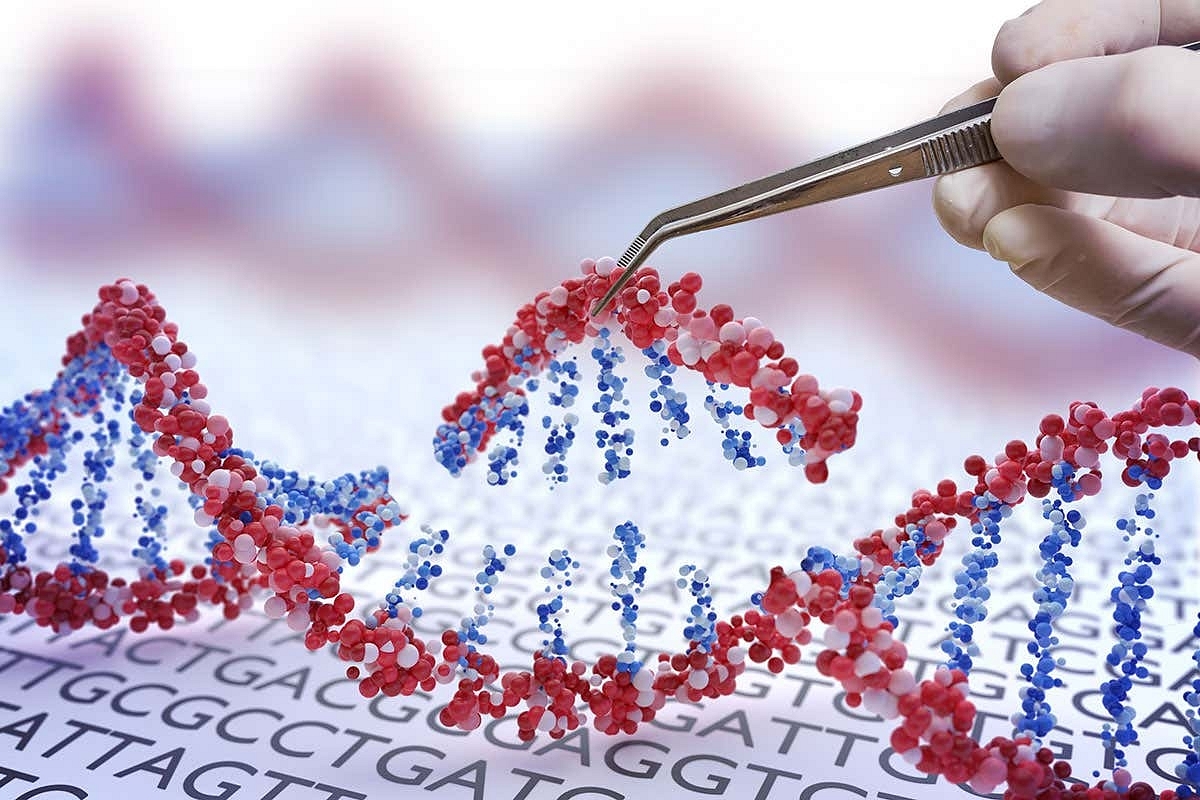World
Genes And Gavel: Decade-Long Intellectual Property Battle For CRISPR Comes To A Halt

Representative image
Last Week on Monday, the decade long legal battle over who has the intellectual property right over CRISPR came to a halt.
What is CRISPR?
CRISPR is the precise and game-changing gene-editing technique. It stands for “clustered regularly interspaced short palindromic repeats,” and it’s one of those things humans found in nature and then copied.
In nature, CRISPR is used by bacteria to repel viruses. This use of CRISPR by bacteria was discovered by scientists in 1990. We human beings have harnessed it to edit DNA sequences which has the potential to begin a revolution in how we treat diseases.
Why did the legal battle come to a halt?
A tribunal within the US Patent and Trademark Office has ruled that CRISPR is an intellectual property of MIT and Broad Institute of Harvard.
The University of California Berkeley and University of Vienna are other institutions who claim that CRISPR is their intellectual property.
Why it matters?
The decision is a blow to the University of California, University of Vienna and biotech companies that had licensed the technology from this universities for use in developing treatments. They will now have to negotiate with MIT and Broad institute for the right to use CRISPR.
"This is pretty bad news for anyone who has a license for Berkeley's technology. They have 100 patent claims that just got wiped off the face of the earth," a report from Stat reads, quoting Jacob Sherkow. Mr.Sherkow is a patent attorney and a professor at the University of Illinois College of Law.
Last year, Cambridge based Intellia Therapeutics became the first company to successfully treat disease in vivo. In other words inside the human body. Their clinical trail aimed to reduce the amount of harmful liver protein associated with a genetic nerve disorder (transthyretin amyloidosis).
In their study they found that harmful liver protein levels dropped by as much as 96% within a matter of weeks. No adverse events were observed in the first four weeks of the trial either.
John Leonard, Intellia’s chief executive officer, after the clinical trail, said that "There’s a feeling like we’re walking through a door here into all kinds of new possibilities".
Intellia's stocks surged 35-45 per cent after the successful gene-editing study. The company's shares had already gone up by 233 per cent since its IPO in 2016, even before this successful study.
Intellia is one of the several companies with a Berkeley license. This ruling invalidates patents of many companies like Intellia Therapeutics.
History
CRISPR was first described by Jennifer Doudna, of UC Berkeley, and Emmanuelle Charpentier from the University of Vienna in a 2012 paper. They won the Nobel Pize in chemistry for this work in 2020.
It is worth flagging that Jennifer Dounda is one of the co-founders of Inellia as well, according to a report from the Financial Times.
The Monday ruling stated that Nobel winners Jennifer Doudna from the University of California at Berkeley and Emmanuelle Charpentier from the University of Vienna failed to prove they were the first to use the gene-editing technology in animal cells.
But these 2 Nobel prize winners are the pioneers of CRISPR, so the ruling of US Patent and Trademark Office doesn't make sense, right?
Well, here is the issue: their initial 2012 article focused on the use of CRISPR to edit genes in a test tube—not eukaryotic cells, i.e., in an animal or human.
A few months later, in January 2013, Broad Institute scientists published a paper documenting the technique worked for animal and human cells, and that is the basis upon which the Patent Office’s appeals board determined the Broad Institute has ownership.
Both the groups filed for patents in 2012. The legal battle been raging on since.
The Present
UC Berkeley and the University of Vienna maintain that their scientists were the first to find a way to guide Crispr-Cas9 to specific locations on the genome and hence CRISPR is their intellectual property.
Broad institute maintains the claim that its scientists were the first to prove the technology worked in plants and animals, including humans. Hence it is their intellectual property as the judgment by US Patent and Trademark Office rightly rules.
University of California, Berkeley and University of Vienna have stated that they intend to challenge this decision.
Intellectual property battles, akin to the fight over CRISPR, may prove to be a hindrance to the recent growth of Biotech economy. There are other hindrances that already exist - unclear regulatory guidelines, the problem of scaling up and pipeline overlap, to name a few.
Introducing ElectionsHQ + 50 Ground Reports Project
The 2024 elections might seem easy to guess, but there are some important questions that shouldn't be missed.
Do freebies still sway voters? Do people prioritise infrastructure when voting? How will Punjab vote?
The answers to these questions provide great insights into where we, as a country, are headed in the years to come.
Swarajya is starting a project with an aim to do 50 solid ground stories and a smart commentary service on WhatsApp, a one-of-a-kind. We'd love your support during this election season.
Click below to contribute.
Latest